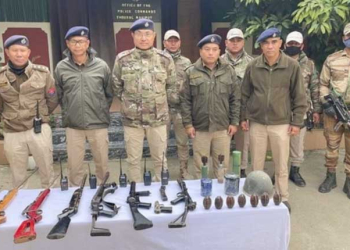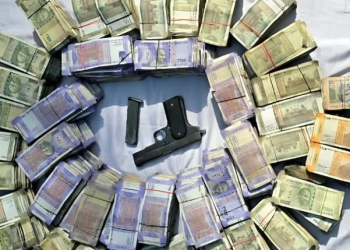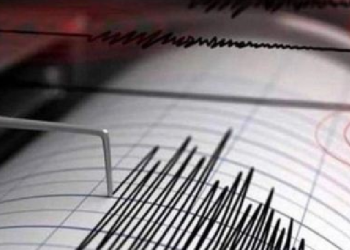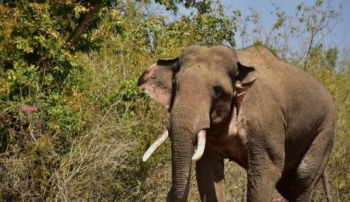New Delhi: The Supreme Court on Tuesday ruled that a single offender can also be prosecuted under the Uttar Pradesh Gangsters and Anti-Social Activities (Prevention) Act, 1986, even in case of a single offence or FIR for any of the anti-social activities mentioned in it.
A bench of Justices M.R. Shah and B.V. Nagarathna said: “So far as the Gangsters Act, 1986 is concerned, there can be prosecution against a person even in case of a single offence/FIR/charge sheet for any of the anti-social activities mentioned in Section 2(b) of the Act provided such an anti-social activity is by violence, or threat or show of violence, or intimidation, or coercion or otherwise with the object of disturbing public order or of gaining any undue temporal, pecuniary, material or other advantage for himself or any other person.”
It said there is no specific provision under the Gangsters Act, 1986 like the specific provisions under the Maharashtra Control of Organised Crime Act, 1999 and the Gujarat Control of Terrorism and Organised Crime Act, 2015 that while prosecuting an accused under the Gangsters Act, there shall be more than one offence or the FIR/charge sheet.
It noted that on a fair reading of the definitions of ‘gang’ contained in Section 2(b) and ‘gangster’ contained in Section 2(c) of the Gangsters Act, a ‘gangster’ means a member or leader or organiser of a gang including any person who abets or assists in the activities of a gang enumerated in clause (b) of Section 2, who either acting singly or collectively commits and indulges in any of the anti-social activities.
“A member of a ‘gang’ acting either singly or collectively may be termed as a member of the ‘gang’ and comes within the definition of ‘gang’, provided he/she is found to have indulged in any of the anti-social activities mentioned in Section 2(b) of the Gangsters Act,” said the bench.
In an appeal in the top court, accused Shraddha Gupta contended that solely on the basis of a single FIR or charge sheet and that too with respect to a single murder, the appellant cannot be said to be a ‘gangster’ and/or a member of a ‘gang’.
Advocate Sanjay Kumar Tyagi, representing the UP government, contended that even in case of a single FIR or charge sheet, in view of anti-social activities mentioned in Section 2(b), there can be a prosecution under the Gangsters Act.
The accused submitted that the allegations against her cannot be said to be in connection with anti-social activities for which she is to be charged for the offences under Sections 2/3 of the Gangsters Act, 1986.
Dismissed the appeals filed by Gupta, the top court said the Allahabad High Court had rightly refused to quash the criminal proceedings against the appellant-accused under Sections 2/3 of the Gangsters Act, 1986, in exercise of powers under Section 482 Cr.P.C.
(IANS)



















